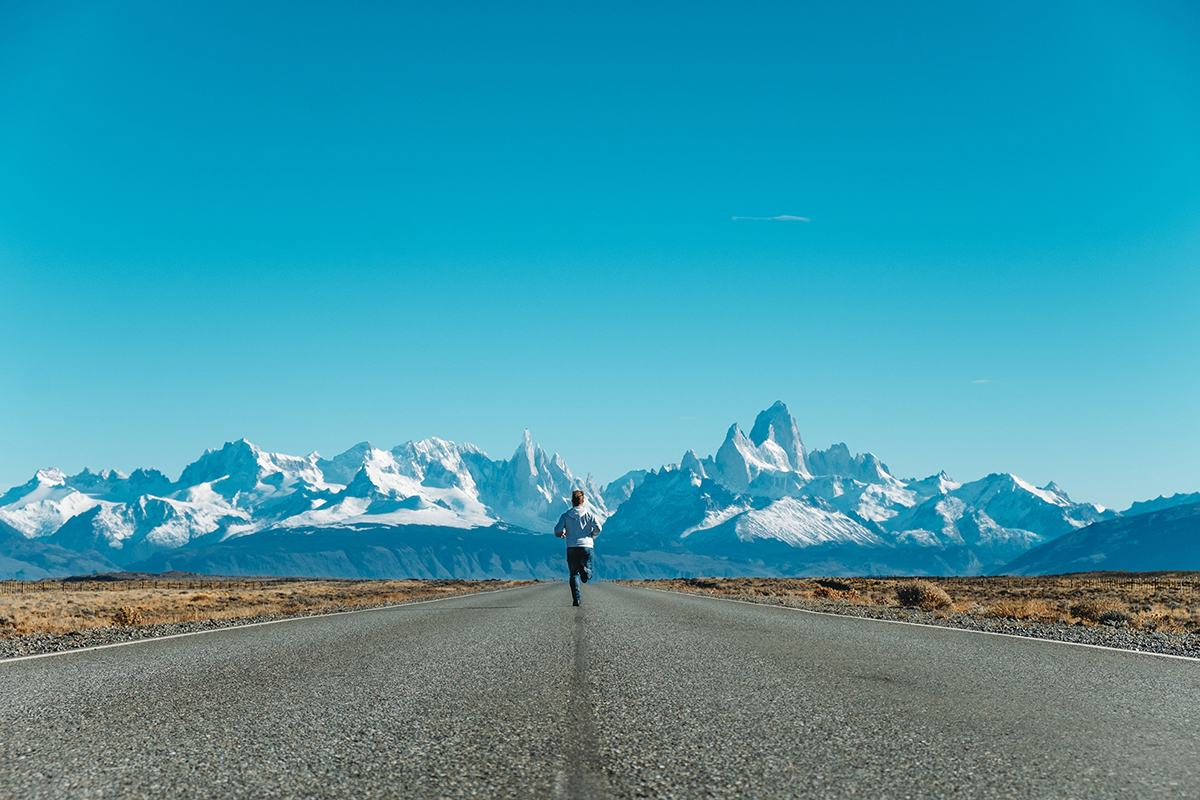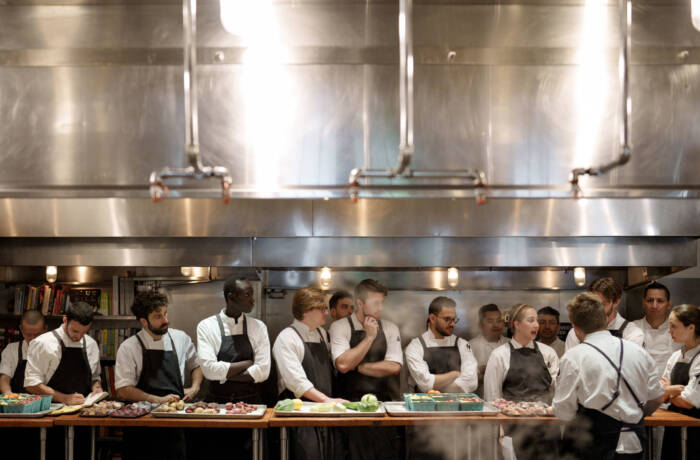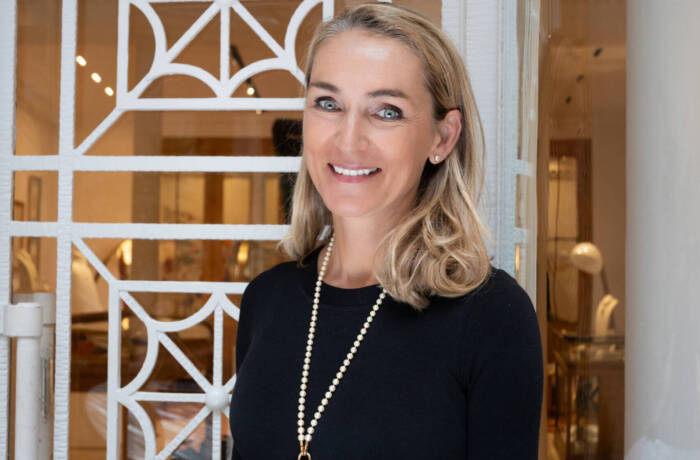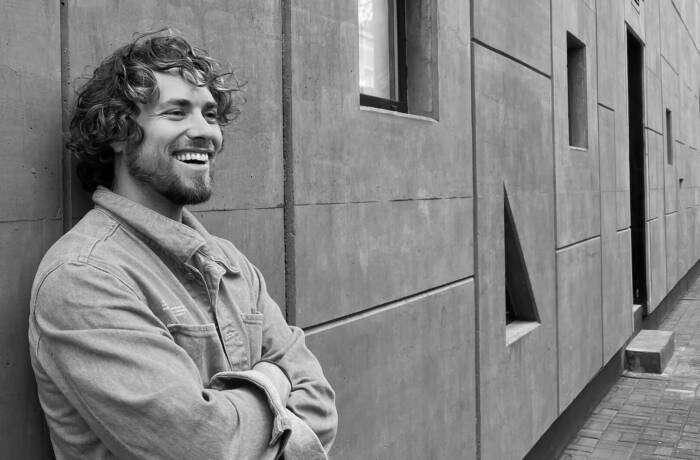
Photo by Andrea Leopardi
Can creating new products be sustainable? Franco Fogliato speaks to LUX about Salomon’s sustainability efforts and how he believes consuming differently can be more important than consuming less
LUX: When did Salomon start focusing on environmental responsibility?
Franco Fogliato: Nature is our backyard. We live in the mountains, we are mountain people. Every time we do something we are trying to be less impactful on nature. Fifteen years ago, we began looking for new technologies, new developments and ways to create positive impact in the way we do things. It has gone from creating shoes that are 100% recyclable, to being the first company in France to make its shoes in our home country, minimising the carbon footprint associated with shipping from factories overseas. These are all initiatives that started ten or fifteen years ago, which have been accelerating ever since.
LUX: How is sustainability at Salomon influenced by its athletes and employees?
FF: We are a company that is led by our athletes. Our athletes are at the forefront of our industry. They push the boundaries of what we do every day to ensure not only that we are the highest performers, but also the most sustainable.
Follow LUX on Instagram: luxthemagazine
We also have a generation of employees that are younger, who are in their late twenties and early thirties, and have grown up with sustainability as a daily topic. Sustainability is part of what our teammates want and what they love. Every time they think about a new product, they first think about how they are going to create it without impacting the world and the planet.

Photo by Kaidi Guo
LUX: How do you approach innovation and sustainability together, ensuring that product development aligns with the brand’s commitment to minimising environmental impact?
FF: It’s a tough conversation. Do you choose the most performant product, which is not sustainable, or do you choose the product which is sustainable but less performant? There are examples every day: we had great shoes which had a great insole, but the insole was unsustainable. We changed the insole with a sustainable insole but which was less resistant, and consumers were not happy. The constant push that comes from athletes and the consumer comes back to our factories and our teams to come out with new technology, that pushes us to the next level.
LUX: Because of your company’s heritage and long-standing reputation in the outdoor industry, do you feel like you have more responsibility than others to be initiating this fight against climate change?
FF: We have to be leaders, it’s not a choice. It’s also what we like to do. It’s pushing the boundaries, in sport and building new products which are more sustainable. Sometimes people use the challenges we face just to make noise, rather than focusing on the actions that are needed. Sometimes my teammates ask me, how we’re going to build the company; people will need to consume less, they say. I say, if you think people will consume less, you are mistaken. There will be new technologies which are a lot less impactful than the way they are today.
LUX: Does creating new products contradict your aim to be environmentally friendly?
FF: I think there is a challenge still on the consumer side where there is a little bit of confusion around what is and is not sustainable. I think people see consuming less as the major driver behind minimising climate change, but in fact the driver is not consuming less but consuming differently.

Photo by Kalen Emsley
The carbon footprint impact of producing a pair of shoes is equal to driving a car for thirty miles. I have a theory that people should stop using cars and just run. I tell my people that they should stop using their cars to come to work and just run here. Why do you need a car? The human being was built on running. I think really activating a different consumption and pushing people outside is really what we want to do. We have a challenge with sustainability, but we also have a challenge in the evolution of the population globally with the digital. We have to take care of how people will evolve.
Read more: Rapha CEO Francois Convercey on diversity and sustainability in cycling
LUX: What are some of the initiatives at Salomon which have made the biggest difference towards sustainability?
FF: The biggest impact on producing a product is transportation, so there is an opportunity going forward in the evolution of the sourcing base, to source closer to the consumer. Many brands have tried that in the past and failed. Lately we had the French President, who had recognised our efforts, visiting our shoe factory in France. That factory would never have been born without us sharing our talents and skills with the local entrepreneurs. No one knows how to build shoes in France any more, as the entire production of shoes has shifted to Asia or Eastern Europe. These are the efforts which have made us recognised by the press and by the media.
LUX: What set Salomon apart from other outdoor gear brands which are also focusing on the sustainability mission?
FF: We like to think this is not a battle for who does the most. The battle is not between companies, it’s much bigger. We have to be ourselves. We have the first fully recyclable shoes; we were the first to do that in the marketplace a couple of years ago. But if someone comes in and is better than us, great! We’ve got to learn to do better, to improve. This is a battle we all fight together. I don’t have a problem with sharing technologies or doing anything which will help make the world into a better place. For once, it’s a competitive environment where there is a team. We are competing all together to make the planet into a better place.
Find out more: salomon.com








